Last week, I worked again with Franciscan Sisters. Myself and Teresa Posakony are working with a planning committee of 16 to prepare for, design, and facilitate the 2013 General 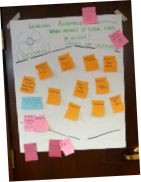 Assembly for their order, the Franciscan Sisters of Perpetual Adoration.
Assembly for their order, the Franciscan Sisters of Perpetual Adoration.
The theme of this upcoming assembly is Risk Boldly the Future. Yes, it is inspiring. The theme, and them. A group of women, vowed sisters and affiliates that are asking key questions of themselves, one another, and their broad community. Questions that touch the core of who they are. Questions that challenge and invite exploration of what community really means. Questions that welcome the edge of dreams and possibilities that they want to imagine together unique to this time.
A few of those questions are going out to their regions and clusters well in advance of the assembly. So as to juice up the energy for them now, and so as to en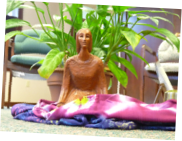 courage a thoughtfulness of continuous learning and engagement with one another.
courage a thoughtfulness of continuous learning and engagement with one another.
1. How will Sisters and Affiliates work together to carry out Franciscan mission, given declining numbers of vowed members and increased need for care among them and in their communities?
2. As we witness positions and tensions between local community and institutional church, how are we called to stand?
3. From our essence, how do we live boldly with the challenges we face and dreams we hold?
What I appreciate in these is that they are all questions that invite getting to the essence of who they are. Getting to the authenticity that is not only their individual voices, but that is at the center of them as a group. Just that, I find, is a beautiful expression of boldness, and oh so needed in many communities.
Teresa and I recommended some additional attention this time to the process methodology of circle. These are women that are not unfamiliar to varied forms of convening in circle. The tradition we have been 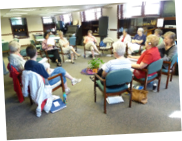 sharing comes from our teachers, Christina Baldwin and Ann Linnea of PeerSpirit. I offered simple metaphor to help that land and to help clarify the circle discipline of directing all (and receiving all) to/from the center. I’ve always thought of the center of a circle as a bit pot of soup. A big kettle with room for many additions. It has broth in it. The conversation and inquiry among the group as a whole is that broth. You could say the purpose is the broth. I think of the individual words, experiences, and stories that we share as spices. We each have opportunity to add spice. And some of us have opportunity to simply stir with the wooden spoon and taste how it is coming along. Like soup, there is value in our conversations slow cooking, giving chance for the individual spices to flavor and cook the full pot. To blend.
sharing comes from our teachers, Christina Baldwin and Ann Linnea of PeerSpirit. I offered simple metaphor to help that land and to help clarify the circle discipline of directing all (and receiving all) to/from the center. I’ve always thought of the center of a circle as a bit pot of soup. A big kettle with room for many additions. It has broth in it. The conversation and inquiry among the group as a whole is that broth. You could say the purpose is the broth. I think of the individual words, experiences, and stories that we share as spices. We each have opportunity to add spice. And some of us have opportunity to simply stir with the wooden spoon and taste how it is coming along. Like soup, there is value in our conversations slow cooking, giving chance for the individual spices to flavor and cook the full pot. To blend.
At this gathering we invited 4-5 person circles to share stories and experiences of risk. So as to become more open and clear with our own varied relationships to risk. I loved the invitation to express first, associations of what we think of with the word risk. Everything from scary, frustrated, intimidated, and yikes to an excitement, a dream, a possibility of movement. I also loved the way that through sharing our deeper stories, principles and learnings about risk became apparent. Though the stories are private, the principles are really good to share. Simple maxims, yet when noticed from the experience of circle, are as lasting and tasty. From the circle I participated in, I harvested these:
- I knew it was time to shift my life.
- Must live from your center.
- I can step into the unknown, even alone.
- It is empowering to come through the other side.
- Listen to the inner feelings; listen to friends.
- Full authenticity creates freedom.
- Step into the challenge; leaning into the fear may not make it go away, but it changes our relationship to it.
- When you say yes, life organizes around that.
These principles and learnings become super valued friends in what is our evolving relationship to fear. It is my experience that they release the default hold that risk, or fear of risk, can conjure up in us. They remind us that we already know a lot and have journeyed quite far in our lives. They inform us and help center the journey ahead. Powerful. And as several commented, in a surprisingly short time. Not just chairs in a circle with obligatory ice-breaking. But deep human connection that clears the path for the future.
One further point I appreciated with this group. Teresa recommended early that we use Mark Nepo’s book, Exquisite Risk, for inspiration. My recommendation is just to get this book. A great resource for if you are hosting work around risk and authenticity. It’s poetic. It’s thoughtful. In this case, a really good entry point to helping this group / us open into our inner resourcefulness about risk. Make some room on your shelf; it’s the kind of book you pick up and read a paragraph or a couple of pages at a time.
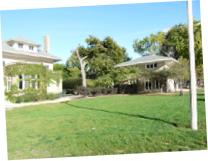 to do what they are doing and a bit more. Yet, their vision is appropriately massive: “Within a generation, we envision a global system of human-scale, interconnected local economies that function in harmony with local ecosystems to meet the basic needs of all people, support just and democratic societies, and foster joyful community life.”
to do what they are doing and a bit more. Yet, their vision is appropriately massive: “Within a generation, we envision a global system of human-scale, interconnected local economies that function in harmony with local ecosystems to meet the basic needs of all people, support just and democratic societies, and foster joyful community life.”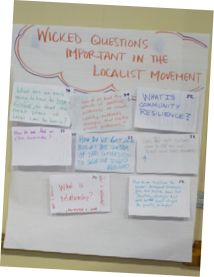 What are we each going to have to lose or release so that the next phase of local can be born?
What are we each going to have to lose or release so that the next phase of local can be born?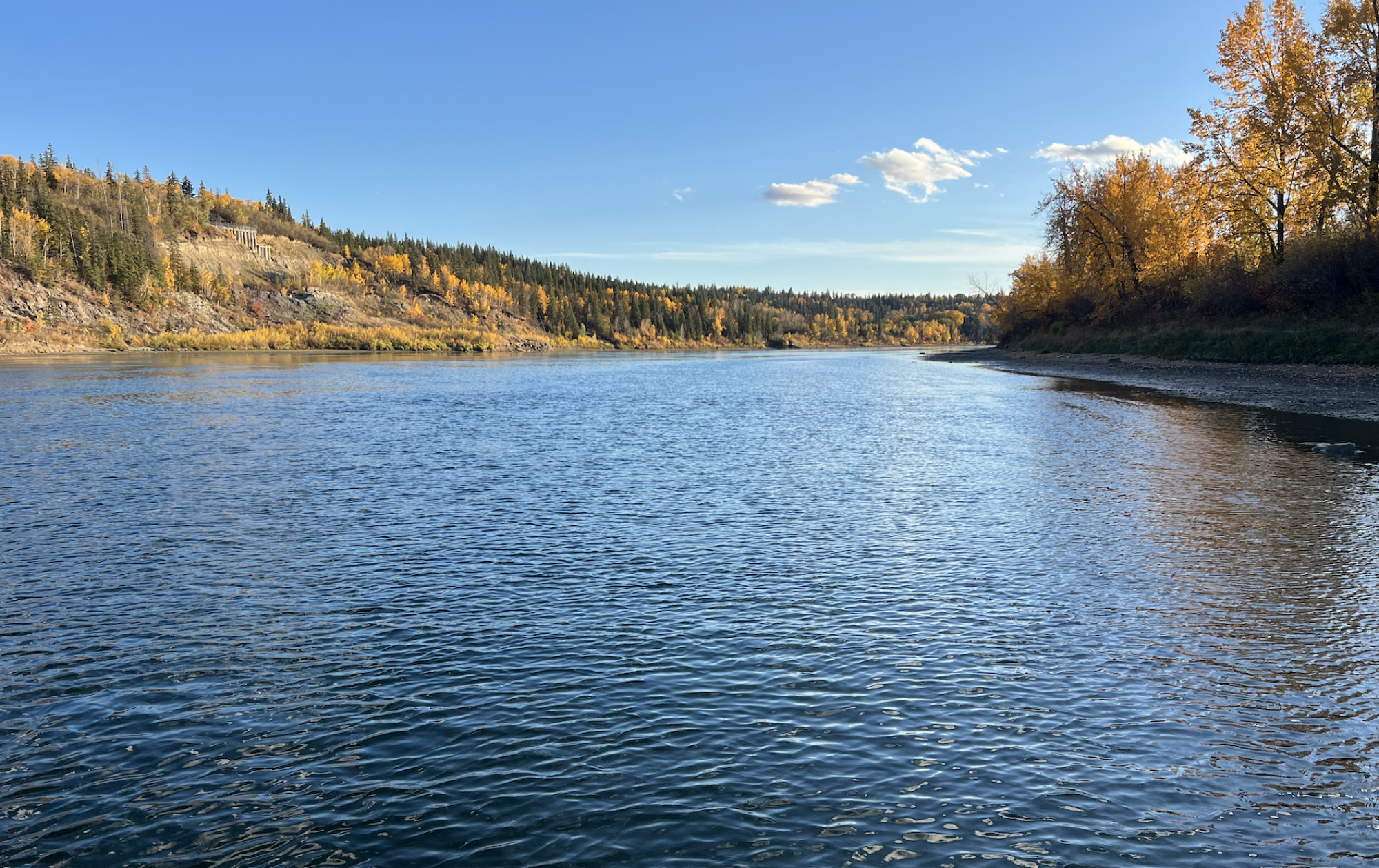
 Assembly for their order, the
Assembly for their order, the  courage a thoughtfulness of continuous learning and engagement with one another.
courage a thoughtfulness of continuous learning and engagement with one another. sharing comes from our teachers,
sharing comes from our teachers, 

